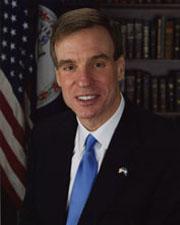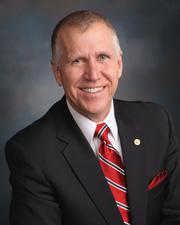A bill to amend the Internal Revenue Code of 1986 to increase the adjusted gross income limitation for above-the-line deduction of expenses of performing artist employees, and for other purposes.
3/27/2025, 10:56 AMCongress
119
Number
S - 1121
Introduced on
2025-03-25
# Amendments
0
Sponsors

Cosponsors

Status of Legislation
Bill Introduced
Introduced to House
House to Vote
Introduced to Senate
Senate to Vote
Purpose and Summary
Read twice and referred to the Committee on Finance.
Bill 119 s 1121, also known as the Performing Artist Tax Parity Act, aims to amend the Internal Revenue Code of 1986 in order to increase the adjusted gross income limitation for above-the-line deduction of expenses for performing artist employees. This bill seeks to provide tax relief for performing artists by allowing them to deduct more of their work-related expenses from their taxable income.
The current adjusted gross income limitation for above-the-line deductions for performing artists is set at $16,000. This bill proposes to increase that limitation, allowing performing artists to deduct a greater amount of their expenses from their taxable income. This change would provide financial relief for performing artists who often incur significant expenses related to their work, such as travel, costumes, and training.
In addition to increasing the adjusted gross income limitation, the bill also includes provisions for other purposes related to tax relief for performing artists. These provisions aim to support the financial stability of performing artists and recognize the unique challenges they face in their line of work. Overall, the Performing Artist Tax Parity Act seeks to provide tax relief for performing artists by increasing the adjusted gross income limitation for above-the-line deductions of expenses. This bill aims to support the financial well-being of performing artists and recognize the important contributions they make to the cultural landscape of the United States.
The current adjusted gross income limitation for above-the-line deductions for performing artists is set at $16,000. This bill proposes to increase that limitation, allowing performing artists to deduct a greater amount of their expenses from their taxable income. This change would provide financial relief for performing artists who often incur significant expenses related to their work, such as travel, costumes, and training.
In addition to increasing the adjusted gross income limitation, the bill also includes provisions for other purposes related to tax relief for performing artists. These provisions aim to support the financial stability of performing artists and recognize the unique challenges they face in their line of work. Overall, the Performing Artist Tax Parity Act seeks to provide tax relief for performing artists by increasing the adjusted gross income limitation for above-the-line deductions of expenses. This bill aims to support the financial well-being of performing artists and recognize the important contributions they make to the cultural landscape of the United States.
Alternative Names
Official Title as IntroducedA bill to amend the Internal Revenue Code of1986 to increase the adjusted gross income limitation for above-the-line deduction of expenses of performing artist employees, and for other purposes.
Display TitleA bill to amend the Internal Revenue Code of1986 to increase the adjusted gross income limitation for above-the-line deduction of expenses of performing artist employees, and for other purposes.
Official Title as IntroducedA bill to amend the Internal Revenue Code of1986 to increase the adjusted gross income limitation for above-the-line deduction of expenses of performing artist employees, and for other purposes.
Comments
Most relevant
Recent Activity
Latest Action3/25/2025
Read twice and referred to the Committee on Finance.